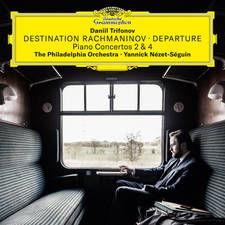On Christmas Eve 1914, WWI paused when troops sang carols across enemy limes
24 December 2024, 14:10 | Updated: 24 December 2024, 14:19

On Christmas Eve 1914 soldiers from both sides of the lines sang carols and laid down their arms.
Listen to this article
By December 1914, the First World War had already lasted a gruelling five months. Both sides were entrenched in a bitter stand-off, inhabiting trenches often as close as 100 metres apart. The conditions were deplorable, with the bitter winter cutting straight to the bones of the young men.
On top of this, it had become clear to all participants that the war was not about to end anytime soon, squashing any jingoistic rallying cries of ‘home by Christmas’.
On Christmas Eve that year, something extraordinary happened. German, French, and British soldiers sang carols all up and down the front lines. Hundreds of letters from soldiers writing home tell of German soldiers singing a carol, to which the British responded with one of theirs.
Read more: During World War II, Steinway pianos were parachuted onto battlefields

'Silent Night' performed by St Paul's Cathedral Choir
In one instance, British soldiers singing ‘O Come, All Ye Faithful’ were joined by their enemies singing the Latin words to the carol, ‘Adeste Fideles’. With the proximity of the opposing lines being so close, and the night of 24 December 1914 being “a beautiful moonlit night, frost on the ground, white almost everywhere”, the voices of the opposing sides would have sounded so close that they could have practically been part of the same choir.
On Christmas Day, the collective singing had created enough trust among many of the soldiers that they tentatively climbed from their trenches and into ‘No man’s land’. During the day, makeshift gifts were exchanged, conversations were had and friendships made. The temporary ceasefire also allowed the warring parties to bury their fallen comrades, whose bodies lay frozen, strewn between the front lines.
One excited Private, 19-year-old Henry Williamson wrote to his mother describing the events describing how ‘Yesterday the British & Germans met & shook hands in the Ground between the trenches, & exchanged souvenirs, & shook hands. Yes, all day Xmas day, & as I write. Marvellous, isn't it?’

In some instances, football matches were arranged, as well as joint burial ceremonies, prisoner swaps and many instances of carolling. After five months of fierce fighting, the situation must have seemed completely surreal.
Both the Allied and German commanders strictly forbade any fraternisation, and the truce was not wholly unanimous across the stretch of the lines. Sadly, the 1914 Christmas Day truce was not repeated for the remaining years of the conflict, as generals clamped down hard on discipline.
Nevertheless, it is a remarkable symbol of hope in the most unlikely of places, and the message remains as powerful 110 years on.









































